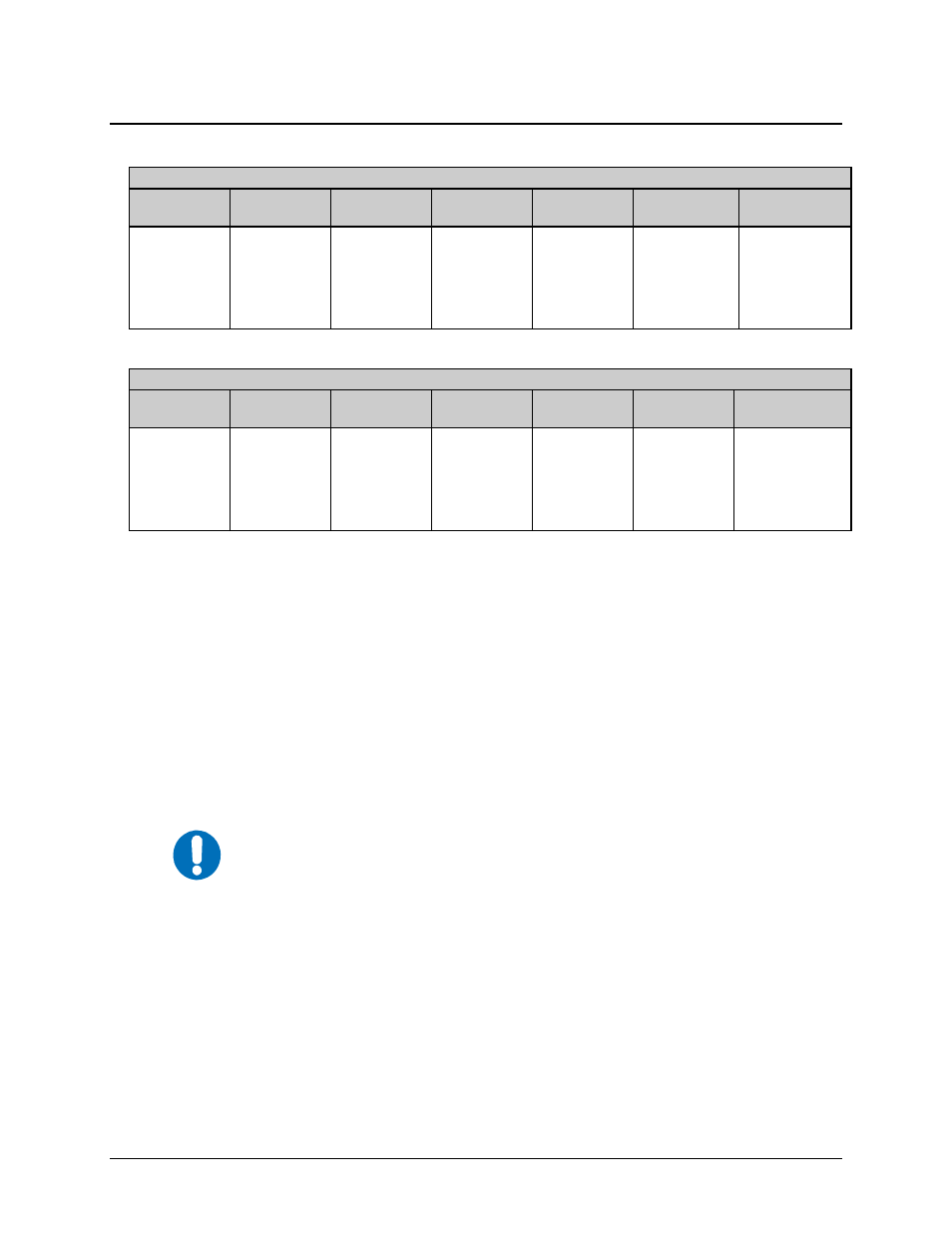A.4 packet structure, A.4.1 start of packet, A.4.2 target address – Comtech EF Data CDM-740 User Manual
Page 116: A.4.3 address delimiter, A.4.4 instruction code

CDM-740 Advanced Satellite Modem
Revision 0
Remote Control
MN-CDM740
A–2
A.4
Packet Structure
Controller-to-Target
Start of
Packet
Target
Address
Address De-
limiter
Instruction
Code
Code
Qualifier
Optional
Arguments
End of Packet
<
ASCII code
60
(1 character)
(4 characters)
/
ASCII code
47
(1 character)
(3 characters)
= or ?
ASCII codes
61 or 63
(1 character)
(n characters)
Carriage Return
ASCII code 13
(1 character)
Example: <0000/RSH=30[cr]
Target-to-Controller
Start of
Packet
Target
Address
Address De-
limiter
Instruction
Code
Code
Qualifier
Optional
Arguments
End of Packet
>
ASCII code
62
(1 character)
(4 characters)
/
ASCII code
47
(1 character)
(3 characters)
=, ?, !, or *
ASCII codes
61,63,33 or
42
(1 character)
(From 0 to n
characters)
Carriage Return,
Line Feed
ASCII codes
13,10
(2 characters)
Example: >0000/BBU=107[cr][lf]
A.4.1 Start of Packet
Controller-to-Target: This is the character '<' (ASCII code 60).
Target-to-Controller: This is the character '>' (ASCII code 62).
Because this is used to provide a reliable indication of the start of packet, these two characters
may not appear anywhere else within the body of the message.
A.4.2 Target Address
Up to 9,999 devices can be uniquely addressed. In EIA-232 applications this value is set to 0.
IMPORTANT
The Controller sends a packet with the address of a Target – the destination of
the packet. When the Target responds, the address used is the same address,
to indicate to the Controller the source of the packet. The Controller does not
have its own address.
A.4.3 Address Delimiter
This is the character ‘/’ (forward slash) (ASCII code 47).
A.4.4 Instruction Code
This is a three-character alphabetic sequence that identifies the subject of the message. Wherever
possible, the instruction codes have been chosen to have some significance. For Example: TFQ
for Tx FreQuency; RMD for Rx MoDulation type, etc. This aids in the readability of the
